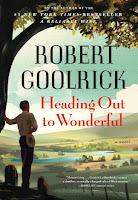 His new book is Sex and Punishment: Four Thousand Years of Judging Desire.
His new book is Sex and Punishment: Four Thousand Years of Judging Desire.One of Berkowitz's five top books on sex and society, as discussed with Lindsey Ford of The Browser:
To Kill a MockingbirdRead about the other books Berkowitz tagged at The Browser.
by Harper Lee
...To Kill a Mockingbird, also deals with themes of rape and violent retribution.
This is another standard that everybody read when they were 14. What I think it really shows is the myth, at least in white America, of the black man as sexual predator – which still exists. The defendant in the case, Tom Robinson, is essentially a cripple. The case, which we tend to forget, was about the rape of a poor white woman. It turns out she was probably raped by her own father. Most rape cases in the United States, for a very long period of time, were against black men. Something like eight out of 10 of those cases ended up in convictions. Quite often, castration was the punishment.
In this case it’s critical to bring up the notion that permeated To Kill a Mockingbird of any black man being a potential sexual predator. As one court put it, any sexual encounter between a white woman and a black man had to be rape, because “no black man couldassume that a white woman would consent to his lustful embraces”. We’ve come a long way from that, but I think that is really at the bottom of the case. Let’s not forget that for most of American history there was no such thing as rape of a black woman – especially black women who were owned by their masters. Part of the benefits of slave ownership was to take sexual advantage of your slaves. There was clearly a double standard.
So the case is about racism, but it’s also about white sexual fear of the black man, and the failed effort of white America to stop intermixing. I think the notion of the scary black man still permeates the American justice system today. Some people are rethinking this book, saying it’s a racist novel, it’s patronising, et cetera. I don’t think To Kill a Mockingbird is one of the greatest pieces of literature ever. I think it’s been overrated over the years. But it is a very good window into the ingrained sexual fear that permeated at least the southern American justice system.
To Kill a Mockingbird made Sissy Spacek's six favorite books list, Kathryn Erskine's top ten list of first person narratives, Julia Donaldson's six best books list, TIME magazine's top 10 list of books you were forced to read in school, John Mullan's list of ten of the best lawyers in literature, John Cusack's list of books that made a difference to him, Lisa Scottoline's top ten list of books about justice, and Luke Leitch's list of ten literary one-hit wonders. It is one of Sanjeev Bhaskar's six best books and one of Alexandra Styron's five best stories of fathers and daughters.
--Marshal Zeringue



















































